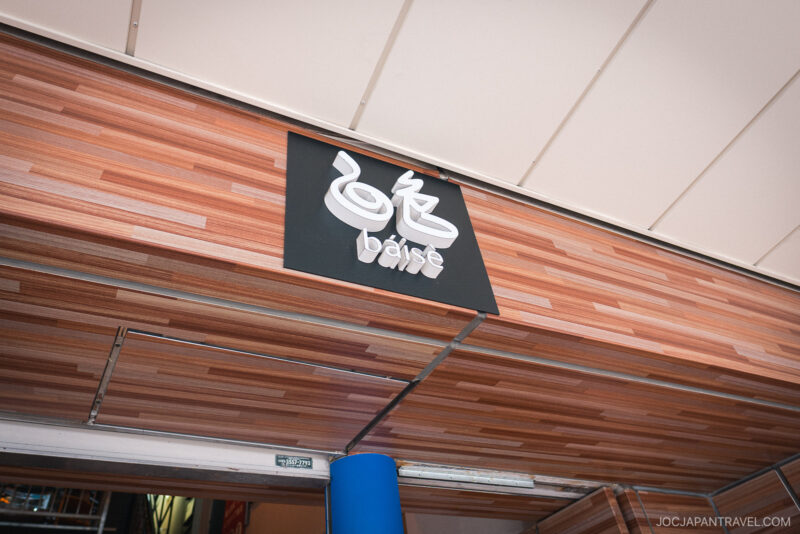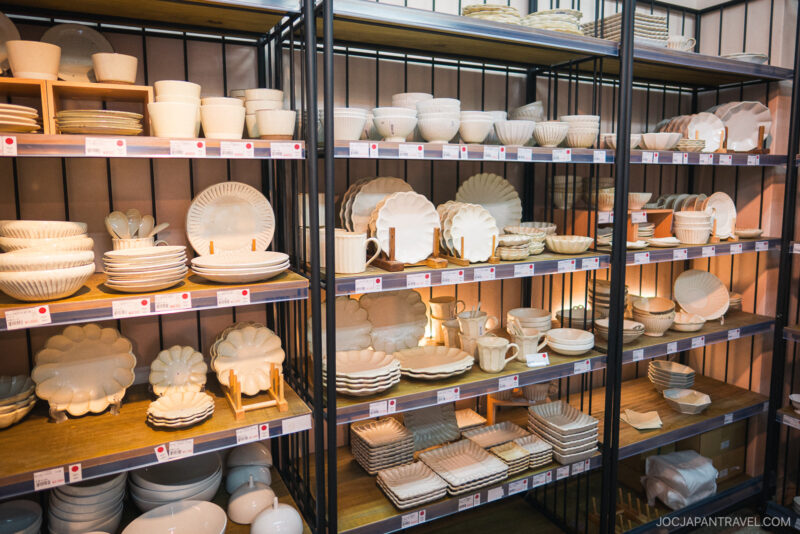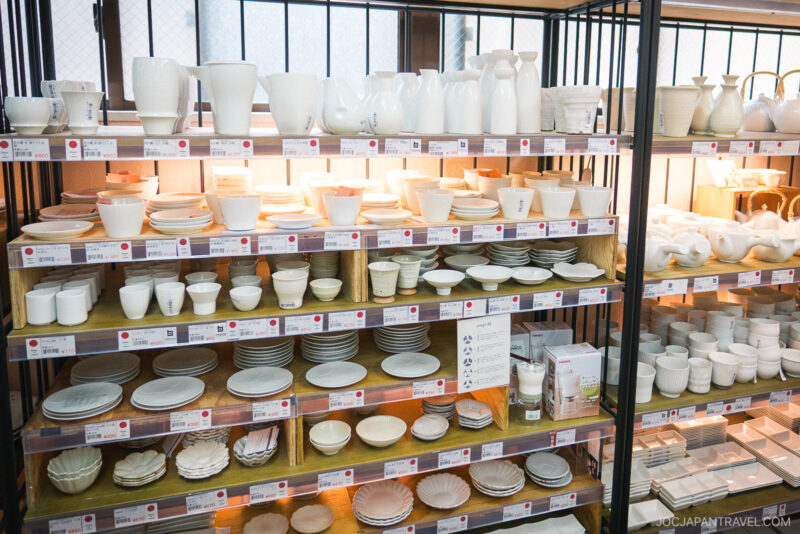This post may contain affiliate links. Please read our disclosure policy.
Baise (白瓷) is a serene Kappabashi Dougu Street shop showcasing white porcelain, wooden serveware, and minimalist Japanese tableware.

A Minimalist Haven on Kappabashi Dougu Street
I have a few favorite shops along Tokyo’s Kappabashi Dougu Street, and Baise is one that always draws me back. This unique store is known for its minimalist design and beautifully crafted ceramics, all in shades of white.
The name baise means “white porcelain” in Japanese, and the first floor lives up to that name perfectly. Shelves are filled with pure white plates, bowls, tea cups, and serveware—pieces that feel as much like art as they do everyday tools.
When I first discovered Baise, I was immediately drawn to the quiet elegance of its collection. After walking past so many colorful kitchen tools and lively storefronts, the calm, refined atmosphere of this shop truly stands out.
Exploring Baise’s Four Floors

Baise has four floors, each with a distinct style that still feels cohesive. I recommend starting at the bottom and working your way up.
- First Floor – White Porcelain: A simple, timeless collection of plates, bowls, and tea sets that suit any table setting.
- Second Floor – Kitchen Ceramics: Shigaraki ware, wine glasses, dessert cups, trays, and other versatile kitchen essentials.
- Third Floor – Home Goods: Wooden tableware, stools, interior decor pieces, and practical storage items.
Each display is curated with plenty of space between pieces, encouraging you to slow down and consider each design. I always leave with new ideas for food styling and inspiration for our own tableware collection.
What You’ll Find at Baise

Baise is ideal for anyone looking to create a thoughtful, coordinated table setting. Pieces here are made to last, and many are versatile enough to mix and match.
Highlights include:
- Pure white porcelain in a variety of forms
- Neutral-toned trays and serveware
- Modern-yet-traditional bowls and plates
- Handcrafted wooden utensils and trivets
How to Get to Baise
Train
- Tawaramachi Station (Tokyo Metro Ginza Line) is about a 6-minute walk, while Asakusa Station is roughly 10 minutes on foot.
Pro Tip: Visit in the morning when the street is less crowded so you can browse each floor without feeling rushed.
My Final Take on Baise
Baise is one of the most beautifully curated tableware shops on Kappabashi Street. I love it for its quiet elegance—it’s perfect for anyone who appreciates Japanese design, whether you’re a home cook, food stylist, or simply searching for a thoughtful gift. The mix of white porcelain, natural wood, and understated ceramics feels refreshing after browsing the busier, more colorful storefronts nearby.
More to Explore Nearby
After shopping for specialized Japanese tableware and ceramics at Baise, continue your dive into the culinary and cultural hubs nearby, from knife shops and food displays to the magnificent Senso-ji Temple area.
- Exploring Plastic Food Samples (Sampuru) – Check out the fascinating stores specializing in realistic plastic food models, a highly unique craft vital to Japanese restaurant displays.
- Kamata Knife Shop – Visit this popular store for high-quality Japanese knives, perfect for professionals and enthusiastic home cooks.
- Senso-ji Temple – Take a short walk to Asakusa to visit Tokyo’s oldest and most famous Buddhist temple, the centerpiece of the area’s traditional culture.
- Nakamise Shopping Street – Stroll down the busy traditional road leading up to Senso-ji Temple, lined with stalls selling souvenirs, snacks, and traditional Japanese goods.
